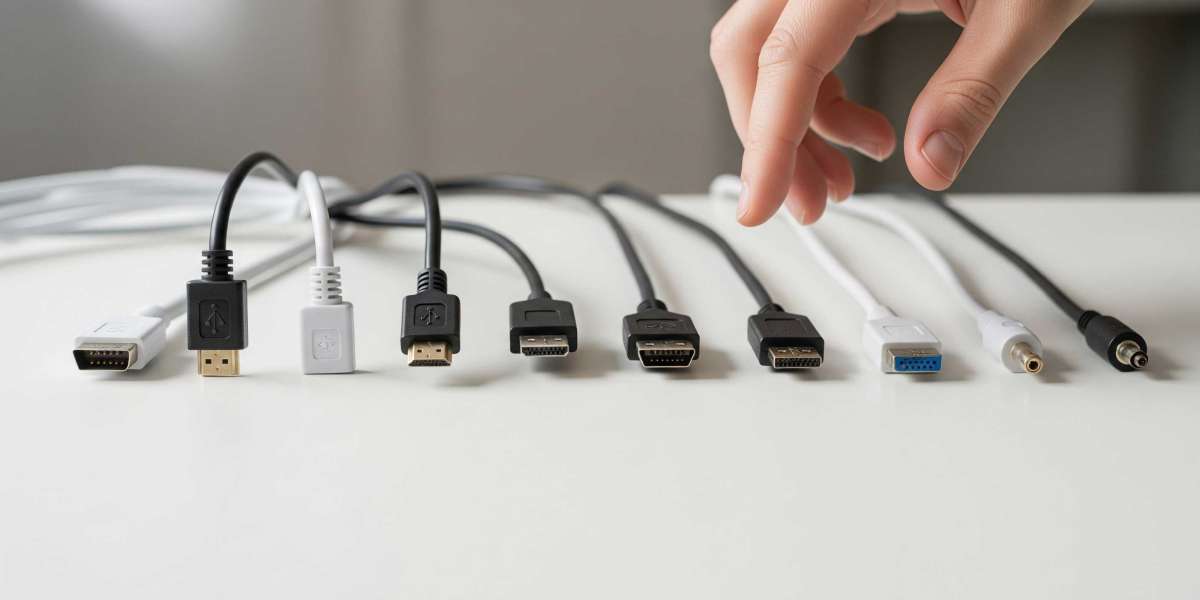Have you ever plugged your phone in to charge and wished it would just power up faster? Fast charging is now a huge trend, but do you really need a special USB cable to make it happen? Let’s break down everything you need to know about fast charging and computer USB cables in the simplest way possible.
What is a Computer USB Cable?
A computer USB cable is a wire that connects devices like phones, tablets, laptops, or game controllers to a computer or charger. USB stands for "Universal Serial Bus," which basically means it's a common way to connect and transfer power or data.
There are different types of computer USB cables, but the most common are:
USB-A (the regular rectangle plug)
USB-C (the small, oval plug that can go in either way)
Micro USB (an older, small plug usually found on older phones and gadgets)
Lightning (used for iPhones and iPads)
What Does Fast Charging Mean?
Fast charging means your device charges much faster than usual. Many new gadgets use this feature, so you spend less time waiting for your battery to fill up and more time enjoying your device.
But here's the thing: not all USB cables can handle fast charging. There are special cables made just for this job.
The Exact Answer: Do You Need a Special USB Cable for Fast Charging?
Yes, you need a special USB cable designed for fast charging if you want your device to charge as quickly as possible.
Regular USB cables often charge slowly. To charge faster, you need a cable built to carry more power safely—these are usually called "fast charging cables." Using the right cable makes a big difference in how quickly your device will charge.
How Does a Fast Charging USB Cable Work?
Fast charging cables are made using thicker wires inside. These thicker wires allow more electricity to move safely from your charger to your device. With a regular cable, only a small amount of power goes through, so charging takes longer.
Some fast charging cables also have extra features like better insulation to keep them safe and strong. Others have markings, such as "fast charge" or "PD" (Power Delivery), showing they are made for high-speed charging.
How Can You Tell If a USB Cable is Good for Fast Charging?
When looking for a fast charging USB cable, check for these signs:
The packaging might say "fast charging," "Quick Charge," or "PD."
The cable feels a little thicker than regular USB cables.
It may support higher amperes, like 2A or 3A, instead of just 1A.
If it’s a USB-C cable, it often works for fast charging (but not always!).
The cable may mention a watt number, like 60W or 100W (higher wattages mean faster charging).
You can also just try it: with the right cable and charger, your device may even say "fast charging" on its screen when you plug it in.
What Happens If You Use a Regular USB Cable?
If you use a regular USB cable that isn’t made for fast charging, your phone or tablet will just charge at the normal, slow speed. Fast charging won’t work, even if your wall charger is powerful.
Think of it like a water hose: a wider hose lets more water flow at once. If the hose is skinny, barely any water comes out, no matter how great the faucet is!
Do All Devices Need Fast Charging Cables?
Not every device needs fast charging. But if you have a newer smartphone, tablet, or gadget that promises fast charging, you’ll need both a fast charging wall adapter and a special fast charging USB cable.
Some laptops and larger devices even need special cables that handle higher wattages, like 60W, 100W, or higher. Always check your gadget’s instructions to be sure.
Types of Fast Charging USB Cables
Here are some popular types of fast charging cables you might see:
USB-C to USB-C: For newer Android phones, tablets, and many laptops.
USB-A to USB-C: For charging with older adapters, still pretty fast.
USB-A to Micro USB: Less common, but some are still used for older gadgets.
USB-C to Lightning: For charging iPhones and iPads fast.
Just remember: the cable should say "fast charging," "Quick Charge 3.0," "Power Delivery," or a similar term.
Why Does Fast Charging Matter?
Saves Time: Get back to using your device faster.
Less Waiting: Charge up during short breaks or before leaving the house.
Useful for Big Devices: Tablets and laptops with USB charging need strong cables.
Better for Busy Days: If you’re always on the go and need quick power-ups.
How to Care for Your USB Cables
Taking care of your computer USB cable helps it last longer:
Don’t pull or twist it too hard.
Keep it away from water and heat.
Roll it up gently instead of folding or crumpling.
Choose cables that are thick and have strong ends—they break less!
What Else Do You Need for Fast Charging?
Not just any cable will do. For the fastest charge, you also need:
A fast charging wall adapter (look for higher wattages like 18W, 30W, 60W, or 100W).
A device that supports fast charging (many do nowadays).
The right cable for your device (USB-C, Lightning, or Micro USB).
All three parts must work together. If any one of them is just "regular," your device won't charge fast—even if you use a special cable.
Final Thoughts
So, do you need a special USB cable for fast charging? Absolutely. If you want your phone, tablet, or laptop to charge up quickly, it’s important to use a computer USB cable made for fast charging. These cables are easy to find, not very expensive, and can make your charging experience so much better. Next time you shop, look for "fast charging" on the label and get ready for speedy power!
Reference: https://vekloy.com/how-to-choose-the-right-usb-cable








